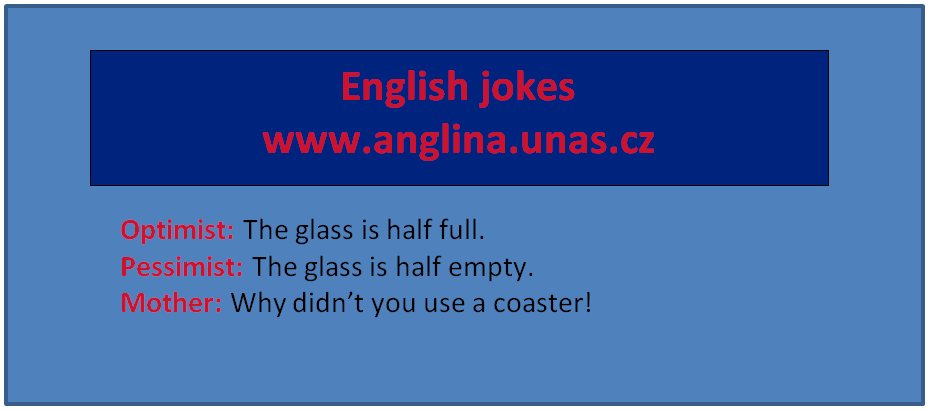Angličtina – Slovesa – časy – Budoucí čas prostý nebo v angličtině „Future Simple„, je prvním budoucím časem, který se studenti naučí. Často ho studenti označují jako budoucí čas se slovesem „will„. Typickým příkladem použití pro budoucí čas prostý může být věta: „I will help you.“
Budoucí čas prostý – Úvod
Tento anglický čas je jeden z nejjednodušších v angličtině. Není potřeba se učit, žádná nepravidelná slovesa (jako je tomu například u minulého prostého času, kde se musíte naučit nepravidelná slovesa). Tento čas je dokonce jednodušší, než přítomný prostý (zde dochází ke změnám ve třetí osobě jednotného čísla: přítomný čas prostý).
Při tvorbě budoucího času prostého se sice chyby nedělají, ale je zaměnitelný se slovním spojením „be going to …“, který naleznete zde: Budoucí čas pomocí vazby „be going to„.
Budoucí čas prostý – Použití
Použití budoucího času prostého – Kdy použijeme budoucí čas prostý?
-
- Vyjádření náhlého rozhodnutí
- Vyjádření názoru
- Vyjádření budoucího faktu
- Vyjádření předpovědi
- Vyjádření něčeho hodně pravděpodobného – tedy téměř jistoty
- Pozvání
- Nabídka
- Požadavek
- Slib
Budoucí čas prostý – Kladná věta
Jak už bylo zmíněno na začátku, tak vytvoření budoucího času prostého není složité. Před infinitiv v základním tvaru přidáme modální sloveso „will“.
| 1. os. j.č. | I will think | I will sit | I will go |
| 2. os. j.č. | You will think | You will sit | You will go |
| 3. os. j.č. | He will think | He will sit | He will go |
| 3. os. j.č. | She will think | She will sit | She will go |
| 3. os. j.č. | It will think | It will sit | It will go |
| 1. os. m.č. | We will think | We will sit | We will go |
| 2 os. m.č. | You will think | You will sit | You will go |
| 3. os. m.č. | They will think | They will sit | They will go |
Místo modálního slovesa „will“ lze použít zkrácený tvar „`ll“. Pokud použijeme zkrácený tvar, tak tabulka vypadá takto:
| 1. os. j.č. | I’ll think | I’ll sit | I’ll go |
| 2. os. j.č. | You’ll think | You’ll sit | You’ll go |
| 3. os. j.č. | He’ll think | He’ll sit | He’ll go |
| 3. os. j.č. | She’ll think | She’ll sit | She’ll go |
| 3. os. j.č. | It’ll think | It’ll sit | It’ll go |
| 1. os. m.č. | We’ll think | We’ll sit | We’ll go |
| 2 os. m.č. | You’ll think | You’ll sit | You’ll go |
| 3. os. m.č. | They’ll think | They’ll sit | They’ll go |
Angličtina online s úsměvem – English Jokes
Pro oddech od angličtiny něco úsměvného v angličtině

Budoucí čas prostý – Záporná věta
Ani tvorba záporné věty budoucího času prostého není složitá. Krom modálního slovesa „will“ přidáme zápor „not“. Celkově tedy „will not“.
| 1. os. j.č. | I will not think | I will not sit | I will not go |
| 2. os. j.č. | You will not think | You will not sit | You will not go |
| 3. os. j.č. | He will not think | He will not sit | He will not go |
| 3. os. j.č. | She will not think | She will not sit | She will not go |
| 3. os. j.č. | It will not think | It will not sit | It will not go |
| 1. os. m.č. | We will not think | We will not sit | We will not go |
| 2 os. m.č. | You will not think | You will not sit | You will not go |
| 3. os. m.č. | They will not think | They will not sit | They will not go |
Nebo pak zkráceně „won`t“:
| 1. os. j.č. | I won’t think | I won’t sit | I won’t go |
| 2. os. j.č. | You won’t think | You won’t sit | You won’t go |
| 3. os. j.č. | He won’t think | He won’t sit | He won’t go |
| 3. os. j.č. | She won’t think | She won’t sit | She won’t go |
| 3. os. j.č. | It won’t think | It won’t sit | It won’t go |
| 1. os. m.č. | We won’t think | We won’t sit | We won’t go |
| 2 os. m.č. | You won’t think | You won’t sit | You won’t go |
| 3. os. m.č. | They won’t think | They won’t sit | They won’t go |
Budoucí čas prostý – Tázací věta
Pokud jste se již učili přítomný čas prostý, tak si určitě pamatujete, že v anglické tázací větě ještě prohazujeme slovosled a že věta začíná v případě přítomného času slovesem „do“ nebo „does“ – v případě budoucího času prostého bude věta začínat modálním slovesem „will“. V tabulce opět najdete několik příkladů:
| 1. os. j.č. | Will I think? | Will I sit? | Will I go? |
| 2 os. j.č. | Will you think? | Will you sit? | Will you go? |
| 3. os. j.č. | Will he think? | Will he sit? | Will he go? |
| 3. os. j.č. | Will she think? | Will she sit? | Will she go? |
| 3. os. j.č. | Will it think? | Will it sit? | Will it go? |
| 1. os. m.č. | Will we think? | Will we sit? | Will we go? |
| 2 os. m.č. | Will you think? | Will you sit? | Will you go? |
| 3. os. m.č. | Will they think? | Will they sit? | Will they go? |
Budoucí čas prostý – Příklady použití ve větách
-
- I will help you. – Pomůžu Ti. (Slib)
- I will send you this paper. – Pošlu Ti tento papír. (Slib)
- I will see you at the meeting tommorow. – Uvidíme se na setkání zítra. (Slib)
- You will enjoy this party. – Ty si užiješ tuto párty. (Předpověď)
- I hope you will win this tournament. – Doufám, že vyhraješ tento turnaj.
- He will carry your boxes. – Přinese Tvoje krabice. (Slib)
- It will be cold day. – To bude chladný den. (Předpověď)
- It will snow today. – Dnes bude sněžit. (Předpověď)
- I think they will win this match. – Myslím, že oni vyhrají tento zápas. (Předpověď)
- Will you marry me? – Vezmeš si mě?
- Will you help me? – Pomůžeš mi?
- Will you send me this paper? – Pošleš mi tento papír?
- Will you go there with me? – Půjdeš tam se mnou?
- Will you invite our mother? – Pozveš naši matku?
- Will you go to Italy? – Pojedeš do Itálie?
- Will he go home with us? – Půjde domů s námi?
- Will he learn English? – Bude se učit angličtinu?
- Will she eat with us? – Bude jíst s námi?
- Will they move to Brno? – Budou se stěhovat do Brna?
Modální sloveso „shall„
Není to moc časté, ale můžete se setkat, že místo modálního slovesa „will“ bude použito sloveso „shall“. Použití vět je naprosto stejné jako je tomu pokud použijeme modální sloveso „will“. Jen modální sloveso „shall“ lze použít pouze v prvních osobách jednotného a množného čísla. Dříve se dalo modální sloveso „shall“ použít ve všech osobách a ve starších učebnicích se s tím ještě můžete setkat, ale v dnešní době se používá hlavně ve zdvořilostních otázkách: „Shall I help you?“
Angličtina – Slovesa a časy – budete pokračovat?
-
- Přítomný čas průběhový
- Přítomný čas prostý
- Minulý čas prostý
- Vazba „used to“
- Minulý čas průběhový
- Vazba „be going to“
- Předpřítomný čas prostý
- Předminulý čas prostý
- Předbudoucí čas
- Anglická nepravidelná slovesa
- Matematika online – www.Math.Kvalitne.cz – stránky kde najdete o matematice prakticky všechno
What now?
Kontakt:
anglina.unas@email.cz
